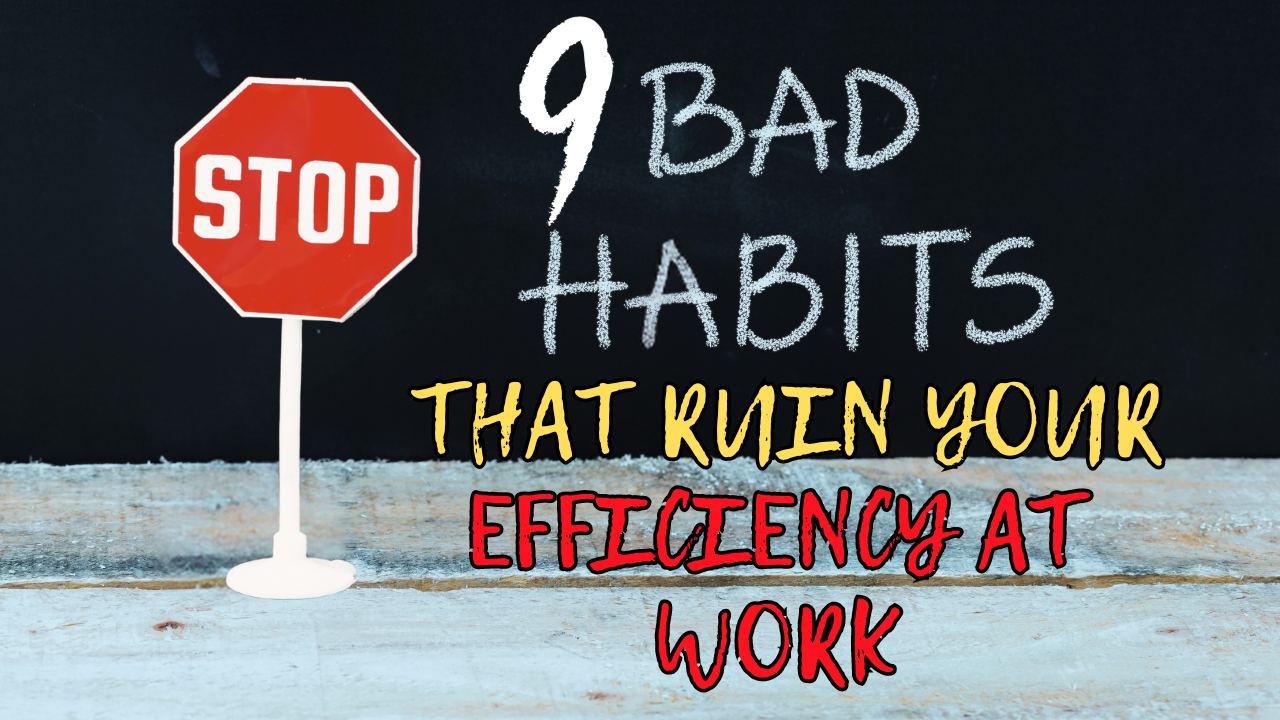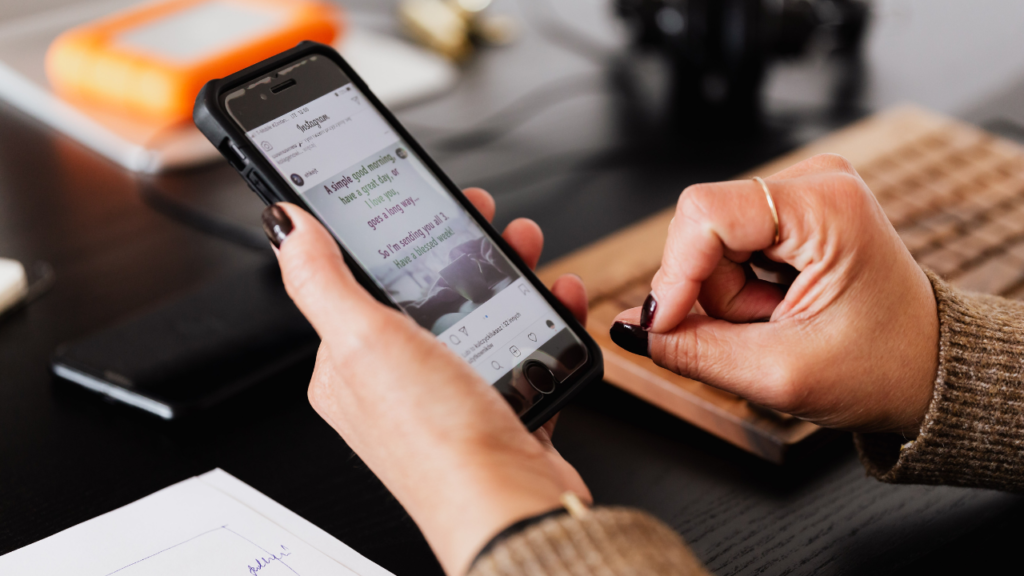
Addictions, lack of exercise, unhealthy eating… Over time, all of these factors end up impacting our health and performance. However, sometimes just changing one or two things is enough to reestablish a good lifestyle.
To increase our life expectancy, it would be enough to get up from our chair and take a few steps every half hour, according to a study conducted by the University of Sydney in Australia. However, we often fail to consider this and end up sitting for too long. Yet, our lifestyle directly impacts our health and consequently affects our professional performance. Fortunately, there are mostly simple tips that can help us combat stress, maintain high concentration throughout the day, and resist the mid-meeting slump.
Let’s identify together the bad habits that are sabotaging our lives and discover how to correct them to regain energy and enhance efficiency.
1. I’M GLUED TO THE INTERNET
Social networks, vacation booking sites, classifieds… An Olfeo study (software edition) among 150,000 employees in Europe reveals that 44% of the time spent on the Internet at work is for personal purposes. Facebook tops the list of the most time-consuming sites. “With an average of 160 friends, if each creates ten events per month, it’s easy to get overwhelmed,” notes Pascale Bélorgey, responsible for Professional Efficiency at Cegos. According to Olfeo, this personal Internet use causes a productivity loss of 10.2% per employee and a direct loss of twenty-five days of work per year for the company. This amounts to a cost of 6,656 euros per employee!
Our advice: “Sort through your contacts on Facebook and Twitter, and set a limit of twenty minutes per day on social networks,” suggests Pascale Bélorgey. Also, avoid surfing before bedtime: it acts as a stimulant and the screen’s light disrupts falling asleep.
2. I CONSTANTLY MONITOR MY EMAILS
Like 75% of employees, you interrupt your work every time an email arrives in your inbox. However, it takes twenty minutes to regain your level of concentration after an interruption. Considering that a professional is solicited every seven minutes, do the math… Your productivity won’t last long! An American study even estimates a two-hour daily loss of working time due to interruptions of all kinds.
Our advice: Turn off your alerts. “Only one out of three emails is work-related,” claims Pascale Bélorgey. Responding immediately encourages your contacts to solicit you more frequently. Choose a suitable moment during the day to check your emails, preferably not in the morning when you are at the peak of your concentration.
3. I NEVER LET GO OF MY SMARTPHONE

Each of us checks our phone 221 times a day, according to a British study. It’s even worse for employees suffering from nomophobia, the panic fear of being separated from their mobile phone.
Our advice: Have two devices… But remember to turn off your work phone when leaving the office. Undergo a digital detox (a weekend in the countryside without a phone). At the office, when the situation demands intense concentration, activate airplane mode to remind yourself how efficient you were before being constantly reachable.
4. I SKIP LUNCH BREAKS
According to an OpinionWay survey from March 2015, 17% of employees do not leave their workstation at lunchtime. They settle for a sandwich to avoid losing a minute of work. Big mistake! These office slaves deprive themselves of a beneficial break: lunch with colleagues encourages the exchange of professional information and stimulates innovation and creativity, according to Dr. Philippe Rodet, a stress management specialist and founder of the Well-being and Company consultancy.
Our advice: Use lunchtime to expand your network and meet new colleagues through the lunch roulette system.
5. I SPEND THE ENTIRE DAY SITTING
Prolonged sitting slows down blood circulation, heart rate, and breathing. The stagnation of blood in the lower limbs increases fatigue. According to an American institution, 60% of employees remain seated for six consecutive hours. It’s no wonder they suffer from neck pain and repeated musculoskeletal disorders. Prolonged sitting is also linked to certain cardiovascular diseases, type 2 diabetes, and colon cancers.
Our advice: Move regularly, make small leg movements to prevent stiffness, take phone calls while walking. If you have to spend hours in front of a computer screen, look into the distance regularly to rest your eyes. If possible, adjust your computer’s height. The keyboard should be at elbow level, the screen at eye level.
6. I SMOKE AND DRINK TO RELAX
According to the National Institute for Prevention and Health Education, 16% of French people consume alcohol at work. And 92% of occupational physicians are consulted at least once a year for problems related to cannabis use. The use of psychotropic drugs, sometimes encouraged during social gatherings, is far from insignificant. The risks? Workplace accidents, lack of self-control, concentration problems, fatigue, and even a decrease in intelligence – allegedly, a joint can reduce one’s IQ by five points.
Our advice: Tackling an addiction is not easy! First, you must become aware of the origin of the problem. “Addiction is always compensation for a lack,” explains Lionel Pagès, an osteopath. People indulge in a small pleasure to alleviate frustration or difficulty.” Addressing the underlying anxiety helps eliminate dependence.
7. A QUICK CHOCOLATE BAR AND I’M BACK ON TRACK!
“In the open office, there’s a box filled with chocolate bars available to everyone, and we replenish it in turn. When the day is tough, the box gets empty,” says Isabelle, a project manager at a communication agency. Be careful: chocolate is a quick sugar, rapidly consumed by the body. It does not provide nourishment but creates dependency. It thus facilitates weight gain and the accumulation of difficult-to-digest toxins.
Our advice: “Replace the chocolate bar with a glass of water and dried fruits,” recommends Lionel Pagès. At lunchtime, adopt a fiber-rich diet with fruits and avoid fatty foods.
8. I’LL START EXERCISING… SOON
Sir Winston Churchill was a force of nature. He resisted a regimen of a bottle of whisky a day combined with several Havanas, without engaging in any physical activity. But don’t be fooled: the lack of exercise prevents the body from managing nervous fatigue, and the cortisol level, the stress hormone, skyrockets. Besides the risk of weight gain, you’re exposed to various physical pains: lower back pain, stiffness, etc.
Our advice: Start exercising and do it soon! Only a good sweat can help you eliminate aggressive substances. You need to run for forty minutes at a slow pace to begin burning fat and eliminating toxins. After two weeks, you won’t be able to do without it: during exercise, the body releases endorphins with euphoric effects. It’s a positive addiction of sorts.
9. I GO TO BED LATE AND SLEEP POORLY
Eight out of ten French people sleep poorly due to their work, according to a study by the Monster website. Be careful, you’re pushing your limits by going to bed late! “The body doesn’t recover. What’s lost is lost,” explains Philippe Rodet. And waking up issues may accumulate, prompting you to skip your lunch break.
Our advice: “Ten minutes of reading at night eliminate 60% of the day’s stress,” claims Philippe Rodet. Evaluate the duration of your sleep cycle (generally between one hour thirty and two hours) and go to bed at a time that allows you to complete an even number of cycles.
Further read:





